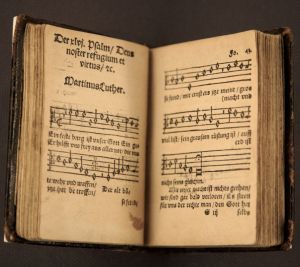 In Daniel 7 and 2 Thessalonians 2 (among other places), the Bible foretold a great “falling away” that would take place in the early church, which would turn it from the bride of Christ into the “man of sin” and the “mystery of iniquity”.
In Daniel 7 and 2 Thessalonians 2 (among other places), the Bible foretold a great “falling away” that would take place in the early church, which would turn it from the bride of Christ into the “man of sin” and the “mystery of iniquity”.
Satan, through his human agents, would put himself on the seat of power, and pretend to be Christ, making false claims, and working miracles and signs to support the claim.
This period of apostasy was also described in the 3rd and 4th churches of the seven churches of Revelation 2, the “Pergamos” and “Thyatira” churches:
Revelation 2
12 And to the angel of the church in Pergamos write; These things saith he which hath the sharp sword with two edges;
13 I know thy works, and where thou dwellest, even where Satan’s seat is: and thou holdest fast my name, and hast not denied my faith, even in those days wherein Antipas was my faithful martyr, who was slain among you, where Satan dwelleth.
14 But I have a few things against thee, because thou hast there them that hold the doctrine of Balaam, who taught Balac to cast a stumblingblock before the children of Israel, to eat things sacrificed unto idols, and to commit fornication.
15 So hast thou also them that hold the doctrine of the Nicolaitans, which thing I hate.
16 Repent; or else I will come unto thee quickly, and will fight against them with the sword of my mouth.
In the Pergamos period, the church was dwelling where “Satan’s seat” was…which is to say that Satan had insinuated himself as the new leader of the so-called Christian church, now called Roman Catholicism. “Antipas” (anti-papal), the faithful martyr is also mentioned as being slain by this apostate body.
Not only did the apostate Christian church become Satan’s spiritual seat of power, but it was handed the geographic center of the old Roman empire: the city of Rome. When Constantine moved the capital of the empire to Constantinople, a vacuum was left in the capital of the West, and the Catholic church, working hand-in-hand with the state power, was quick to make this their new headquarters.
This is well pictured in the prophecies of Revelation 12 and 13, where a power is represented: the “great red dragon” (Revelation 12:3) who sought to “devour…the man child” (Revelation 12:4,5). But the child was “caught up to God and to his throne.” (Revelation 12:5). Clearly this pictures Satan working through the empire of Rome to try and overcome Christ, but who was instead resurrected to heaven to sit at the right hand of God the Father.
Having failed in this endeavor, the next plot of the dragon power was to “persecute the woman which brought forth the man child” (Revelation 12:13). This represents the attempts of the ancient empire of Rome to root out the early Christian church through bitter persecutions.
When this also failed to overcome the faithful, Satan pulled yet another tactic: insinuate himself and his ideas into the Christian church. The apostle Paul, elaborating on the prophecies of Daniel 7 and 8, had predicted a “falling away” on the part of the Christian church, which would give rise to the “man of sin”, the “son of perdition”, “shewing himself that he is God.” (2 Thessalonians 2:3,4). This apostasy, based on pride and false teaching, was to actually claim to be God’s representative on earth!
Another detail given in Revelation was that the dragon handed “his power, and his seat, and great authority” (Revelation 13:2) to this new power who according to (Revelation 13:5-7) would:
- blaspheme the name of God
- blaspheme His temple
- blaspheme His people, and persecuted them to death with the sword
How well this fits to the course of the Roman church, who has:
- invented horrible doctrines that mar God’s character
- attempted to remove the faith of men from the priesthood of Christ in the heavenly sanctuary to a mere earthly priesthood and worldly temple
- hunted and killed those who would contend for a pure faith and doctrine
This apostasy was also to be identified by the doctrine of Balaam: making money from religion by false worship, which leads to fornication: mingling religion with the state in order to gain prestige and power (Revelation 2:14); and by the doctrine of the Nicolaitans (Revelation 2:15), who turned the grace of God into an excuse for lust, similar to the modern teaching that the grace of God nullifies the law of God.
The promise was given, “I will fight against them with the sword of my mouth” (Revelation 2:16). Here was the promise that the Bible would come alive again, and be the source of all true faith and worship.
Revelation 2
18 And unto the angel of the church in Thyatira write; These things saith the Son of God, who hath his eyes like unto a flame of fire, and his feet are like fine brass;
19 I know thy works, and charity, and service, and faith, and thy patience, and thy works; and the last to be more than the first.
20 Notwithstanding I have a few things against thee, because thou sufferest that woman Jezebel, which calleth herself a prophetess, to teach and to seduce my servants to commit fornication, and to eat things sacrificed unto idols.
21 And I gave her space to repent of her fornication; and she repented not.
22 Behold, I will cast her into a bed, and them that commit adultery with her into great tribulation, except they repent of their deeds.
23 And I will kill her children with death; and all the churches shall know that I am he which searcheth the reins and hearts: and I will give unto every one of you according to your works.
24 But unto you I say, and unto the rest in Thyatira, as many as have not this doctrine, and which have not known the depths of Satan, as they speak; I will put upon you none other burden.
25 But that which ye have already hold fast till I come.
26 And he that overcometh, and keepeth my works unto the end, to him will I give power over the nations:
27 And he shall rule them with a rod of iron; as the vessels of a potter shall they be broken to shivers: even as I received of my Father.
28 And I will give him the morning star.
Here, the apostasy deepens into the formation of Jezebel, a false prophetess (or false church) who pretends to be God’s representative, committing adultery (courting the power of the kings and princes, instead of the power of the gospel).
As this false church used the state power to persecute the true believers, so the promise was given that those who overcame, would have “power over the nations” and “rule them with a rod of iron.” The situation would eventually be reversed, and the power of the state would turn back upon the false church:
Revelation 13
10 He that leads into captivity shall go into captivity: he that kills with the sword must be killed with the sword. Here is the patience and the faith of the saints.
The promise was also given, “I will give him the morning star.”
This prophecy was literally fulfilled with the arrival of John Wycliffe, who is called the “morning star of the Reformation.” With his arrival, the light of the Reformation would not go out, and was eventually lit in full blaze by men such as Martin Luther and John Calvin in the 16th century.
Since these men began the journey out of apostasy and back to the true faith, every true church of God must build upon this foundation. So it would not be fitting to devote a website to sacred music without a few pieces that recognize our fore-fathers.
Johann Walter
I have selected a few songs from Johann Walter, Luther’s first musical editor and composer. I rendered the texts into English, sometimes making them more relevant to our times. Luther’s influence on the development of Protestant music was great. He composed and sang music himself, and brought a new element of the expression of personal religious experience into church music.
Claude Goudimel
And there are a few Psalm arrangements by Claude Goudimel, a French Huguenot who is “most famous for his four-part settings of the psalms of the Genevan Psalter, in the French versions of Clément Marot.” (Wikipedia article, Claude Goudimel).
Calvin’s contribution to Protestant music was the Genevan Psalter, a hymn book in which the Psalms were turned into metered poetry (originally in French, but later translated into other languages). These were combined with tunes that were composed for church use, melodies that were within the range of a common voice, yet solemn and fitting to the text. This combination proved to be very powerful and influential.
Goudimel’s harmonizations of these psalm-tunes were among the most beautiful, varied, and interesting. I will offer a few here that I have modified for use with metrical English Psalm translations.
By the influence of these Christian leaders, and many others like them, the use of sacred song, to bring the words and promises of the Bible into daily life, was restored. Singing the Word of God becomes one of the means by which God “wars against” the apostasy of the faith, “by the Word of My mouth.” (Revelation 2:16)
Isaac Watts
Isaac Watts had an immense influence on the course of English sacred poetry. He brought a whole new palette of rich language into the service of the hymn, as well as individual expression.
In his 750+ hymns and psalms, much of the “singable” part of the Bible is reduced to english poetry that is practical and pious, and also charming in its imaginative expression.
He, along with the Wesley’s, definitely paved the way for the enthusiastic and apocalyptic Advent hymns that were to arise in the early and mid-1800’s, during the Advent Awakening.
Tags: Calvin, Luther, Morning Star, Prophecy, Reformation


